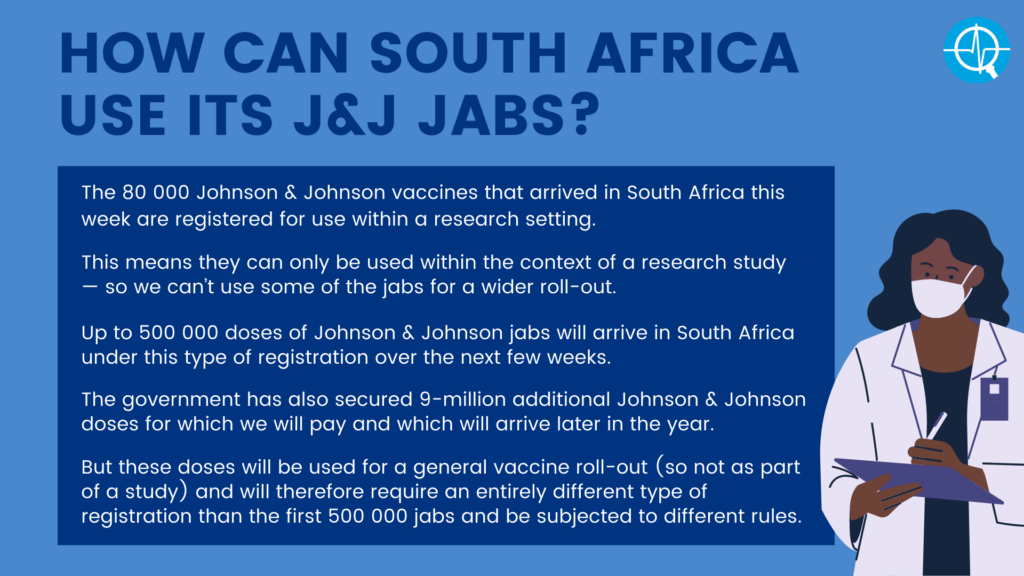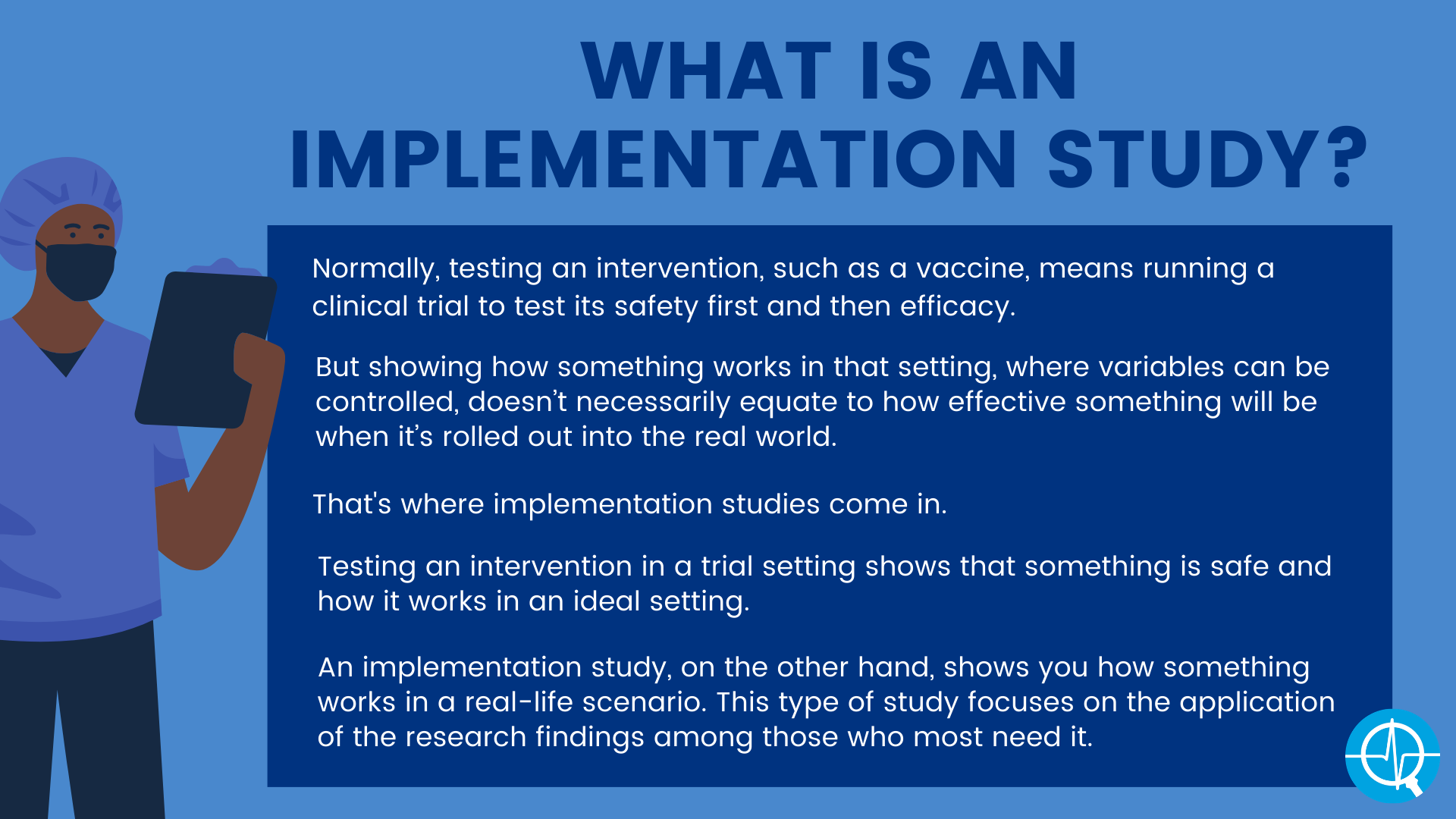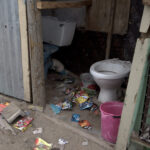- South Africa’s medicine regulator Sahpra amended the Johnson & Johnson implementation study’s guidelines to include government officials with a health qualification, the President, and his deputy.
- There are four different types of approval a vaccine (and medicine in general) can get from our medicine regulator.
- Our first four batches of Johnson & Johnson vaccines and the 9-million we’ll be getting later are entering the country under different types of registration — that’s why there are different rules for their use.
On Wednesday 17 February, around 2pm, South Africa’s first four health workers received their COVID jabs on live television. They each received one of the 80 000 Johnson & Johnson shots that arrived in South Africa on Tuesday.
These jabs are reserved for health workers who are participating in the national health department and South African Medical Research Council’s COVID vaccine roll-out implementation study.
But why then, could President Cyril Ramaphosa, Health Minister Zweli Mkhize and other public figures receive jabs too?
And why did the Johnson & Johnson vaccines not go for tests at the National Control Laboratory in Bloemfontein like the AstraZeneca jabs that arrived earlier this month did?
We break down the different ways in which vaccines can get registered in South Africa and how that affects the regulations that need to be followed. We also explain how implementation studies work, what study protocols are and when — and how — they can be adjusted.
1. What type of approval do the current JnJ doses arriving have?
The 80 000 Johnson & Johnson vaccines that arrived in South Africa this week are registered for use within a research setting. This means they can only be used within the context of a research study — so we can’t use some of the jabs for a wider roll-out.
Up to 500 000 doses of Johnson & Johnson jabs will arrive in South Africa under this type of registration — three batches of 80 000, another batch of 60 000 and 200 000 more if we can prove to Johnson & Johnson that we were able to administer the first 300 000.
Johnson & Johnson is providing the 500 000 jabs to South Africa for free. We’re using the vaccines in something called an implementation study, which is research that looks at aspects relating to the real-life implementation of medical interventions.
In the case of the Johnson & Johnson vaccine, scientists will study how eager South Africans are to use the jab, if there are any problems with uptake, and, even though we’ve already got enough data to show us that the vaccine is safe and effective to use in South Africa, they will also use the opportunity to collect additional data on side effects and how well the jab works against the new SARS-CoV-2 variant, 501Y.V2, that is now dominant in South Africa.
The free jabs we’re getting were manufactured for use in clinical trials that tested the safety and efficacy of Johnson & Johnson’s vaccine. The company manufactured extra doses which were not used in the trials and are now instead being given to South Africa for use in its roll-out.

The government has also secured 9-million additional Johnson & Johnson doses for which we will pay and which will arrive later in the year — but these doses will be used for a general vaccine roll-out (so not as part of a study) and will therefore require an entirely different type of registration than the first 500 000 jabs and be subjected to different rules.
But why are we using the first 500 000 jabs in a research study and the rest for a wider roll-out — why don’t we just register all of them for general roll-out use?
The short answer: Because it’s much quicker to get vaccines registered for use in a clinical trial than it is to get them registered for wider use — so while we’re waiting for our medicine regulator, the South African Health Products Regulatory Authority, Sahpra, to work through loads of data to certify the Johnson & Johnson jabs as safe and effective, we needed to find a legal way to get jabs into the country to start with vaccinations so long. Otherwise, we’d likely be stuck for at least another month without any vaccinations.
Normally, it can take up to 90 days to approve a medicine or device for use in a clinical trial, says Sahpra’s CEO Boitumelo Semete-Makokotlela. But with COVID vaccines, the regulatory body is trying to expedite this process and get it down to a couple of weeks.
Sahpra spokesperson Yuven Gounden reiterates: When something is approved in this way it means that the product — in this case the Johnson & Johnson vaccine — can only be used in the study and as specified in the trial protocol.
While the AstraZeneca ‘Covishield’ vaccines South Africa sourced from the Serum Institute of India had to first be sent to the National Control Laboratory in Bloemfontein for independent testing, doses being used in a trial setting do not need to undergo additional testing and verification processes.
But there are limitations with regards to who can get inoculated in our implementation study.
The study’s protocol only allows health workers to be vaccinated. Study protocols are a kind of rulebook that stipulate how a study will be conducted. It usually contains information about who can take part in the study, which interventions will be tested and why. This kind of planning has two functions – to make sure the data collected is accurate, and to keep participants safe. Study protocols are submitted to the regulators that give the study the go-ahead and the “rule book” is also sent to the organisations who fund the study.

So how come the president, deputy president, health minister and union leaders were vaccinated on Wednesday if they’re not health workers?
Well, changes to study protocols can sometimes be made — if there are justifiable reasons. Sahpra guidelines for conducting research during the COVID-19 pandemic stipulates that changes that don’t impact too much on the study design must be documented and discussed with the study’s research ethics committee.
Changes to the way data is collected should be flagged to Sahpra’s clinical trials unit.
In the case of the Johnson & Johnson vaccine, Sahpra adjusted the implementation study’s protocol to include government officials with health qualifications, a health department memorandum explains.
Sahpra also amended the study’s protocol to include Ramaphosa and Mabuza in an effort to “encourage vaccine uptake and reduce vaccine hesitancy”, says the body’s chief executive officer Boitumelo Semete-Makokotlela in a statement.
The union officials who were vaccinated were all health workers — the government defines health workers for the purpose of COVID vaccinations as everyone working in health settings, not just health professionals such as doctors and nurses.
The world of regulatory approval for medicines can be dizzying. We break down some of the concepts you will come across as South Africa works to register COVID-19 vaccines for widespread use.
2. What other types of approval are there — and how do they work?
In addition to registration for use in a research setting (as is the case with the 80 000 Johnson & Johnson jabs that arrived this week), there are three other types of approval that medical products such as vaccines can get from Sahpra.
• The usual: Registration under normal circumstances
A company’s submissions for registration of a medicine will go through a two-step screening process to make sure that only high-quality applications are considered in the first place.
Then, the data will be reviewed by two evaluators, of which at least one has to be a senior. If the pair agree that there are no more questions or queries for the company to answer, the submission will go to an advisory committee for review. This team will focus only on the complex parts of the evaluation that were flagged by the previous two evaluators. Once that box is ticked, Sahpra will make the final call on whether the medicine should be registered for use in South Africa or not.
The time it takes to do this can vary, but it can take about a year for generic medicines, according to Sahpra’s 2020 performance plan.
The process is longer for cases in which Sahpra is the first regulator to conduct a “full review” of the medicine without the help of reports from other, trustworthy regulators such as the United States Food and Drug Administration (FDA), Gounden says. When Sahpra relies on the findings of such regulators to guide and speed up its approval processes, they’re using something called a “reliance mechanism”.
Sahpra aims to approve newer medicines within two years, according to targets published in the regulator’s 2020 planning document.
But in the case of COVID vaccines, we cannot wait that long for approval, because of the potential these jabs have to stop people getting very sick.
So Sahpra has ways to speed up this process, mainly in the form of types of registration that goes faster (see section 4 for more details).
• The good samaritan: Section 21 authorisation
In January, Sahpra granted the health department permission to import AstraZeneca’s Covishield jab and distribute it to health workers by using Section 21 of the Medicines Act, according to a Sahpra statement.
A Section 21 authorisation gives doctors permission to order unregistered medicine for patients under specific conditions. Usually, doctors would have to apply for their patients to be treated with the medicine individually.
Section 21 is South Africa’s equivalent to emergency use authorisation granted by the Food and Drug Administration in the United States.
These authorisations are granted when there are no other options for treatment, or the other options have failed, according to a 25 January presentation by Semete-Makokotlela. Still, there must also be enough scientific data to demonstrate the safety, efficacy and quality of the medicine, and to show that the product could be beneficial to patients.
But in cases in which there’s not just one patient who needs the unregistered medicine, Sahpra can issue a “bulk approval” for unregistered medicines through Section 21, Semete-Makokotlela says.
This means companies can bring in a large quantity of medicines, such as the AstraZeneca vaccines, that don’t have to be approved for individual patients.
• The yes, but: Conditional registration
When it comes to COVID-19 vaccines, Sahpra can also grant a conditional registration, explains a guideline document for the pharmaceutical industry published in November 2020.
In this case, the data that would usually be submitted for review may not yet be available, because research is still underway. Sahpra would then look at the information that is available to evaluate the quality, safety and efficacy of the vaccine in an effort to get jabs to the public quickly.
It’s not a free pass. New, more detailed data must be submitted within a certain time frame, but Sahpra’s online document doesn’t stipulate how long companies have to submit the rest of the data.
Sahpra has not yet used this option for COVID-19 vaccines.
3. How does Sahpra decide if a COVID vaccine works?
Currently, Sahpra is working with a threshold of 50% efficacy for approval — this is in line with the standard the World Health Organisation uses for COVID vaccines.
When vaccines are tested, researchers split the trial participants into two groups where one group receives a dummy vaccine and the other the actual vaccine. They do this so that they can compare the number of infections in each group to determine how well the vaccine works. For a jab to have 50% efficacy, the vaccinated group needs to have half the number of symptomatic infections of the group who did not receive the jab.
It is unclear how the new 501Y.V2 variant in South Africa will factor into this efficacy threshold or if the protection level will need to be adjusted as we learn more about the changing forms of the virus.
In a January presentation, Semete-Makokotlela said Sahpra approved the Covishield vaccines from AstraZeneca based on data showing around 70% efficacy. More recent data presented on 7 February by Shabir Madhi, the lead investigator of the local trial testing the jab, showed that the vaccine’s efficacy had dropped to 22% in South Africa — with a further reduction to 10% protection offered against the variant dominant in the country.
At this stage, the jab had already received regulatory approval from Sahpra based on their review of the available data at the time (which showed a much higher protection level). By the time the results of the AstraZeneca vaccine’s reduced efficacy against the variant was published, South Africa had already procured 1.5-million doses of the jab. These doses have now been offered to the African Union, which will distribute them to interested countries, Health Minister Zweli Mkhize announced during his SONA debate on Tuesday.
When new data is released about a product, this must then be submitted to Sahpra, says Semete-Makokotlela. They will then review the new information and re-evaluate if any amendments need to be made to the vaccine’s approval. This re-assessment is currently underway with the AstraZeneca COVID jab.
4. How is South Africa expediting approval for COVID-19 vaccines?
First off, all applications relating to COVID-19 are essentially able to jump straight to the front of the queue. This includes submissions for approval of COVID vaccines which are earmarked for priority review. A priority application is dealt with urgently and Sahpra tries to conclude its review of the product as quickly as possible, but without changing or lowering the standards of the review process.
As part of a bid to expedite the approval process for COVID medications and vaccines, Sahpra introduced the option of a ‘reliance mechanism’.
This means that if another trustworthy regulatory body, like the FDA in the US, approves a vaccine, Sahpra can use that body’s review documents to help shorten the amount of time put into its own review.
But this only works if a vaccine receives approval elsewhere before submitting to South Africa.
In the case of Johnson & Johnson (so for the 9-million doses we will receive later this year), their application is undergoing a rolling review by Sahpra where data is being continuously submitted for checking by the regulatory body as it becomes available. This way both Sahpra and Johnson & Johnson do not need to wait until all the information becomes available and then wait additional months for the review to be completed.
Instead, the review can be done in stages — with Sahpra checking phase one (the initial stage of human trials) data for the trial and concluding that process before phase three (the final stage of human trials) data becomes available.
When a company opts to do a rolling review and there is not yet final data on the product available, as was the case with Johnson & Johnson, then there is no other country for Sahpra to rely on when it comes to sharing data.
Rather, the reviews are being done by multiple regulatory bodies “in parallel”, explains Gounden. For this reason: “We do not have access to any other regulator reports and will have to do a full review as we are reviewing at the same time.”
But Sahpra could use this route for a vaccine, like Pfizer, that has already undergone review and received emergency approval from the FDA.
At the moment the FDA is set to meet on 26 February to discuss the emergency approval of Johnson & Johnson’s candidate. This 22-day review is comparable to the time taken by the body to review Pfizer (21 days) and Moderna’s (17 days) jabs — and is significantly reduced from the months normally spent completing this process.
Semete-Makokotlela says Sahpra is still waiting on the last batch of data to arrive from Johnson & Johnson before it can finalise its own rolling review. But she says, they are unlikely to rely on FDA emergency approval or reports to inform their decision because Sahpra needs to consider how the vaccines work in a South African context and against the 501Y.V2 variant.
[Updated 8:37 26 February 2021: This article was updated to reflect new information from Sahpra regarding the approval process for the Johnson & Johnson vaccines coming to South Africa and the status of approval for the AstraZeneca vaccines.]








